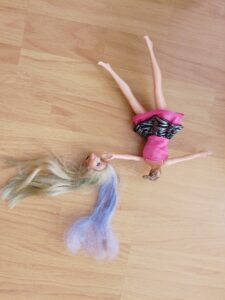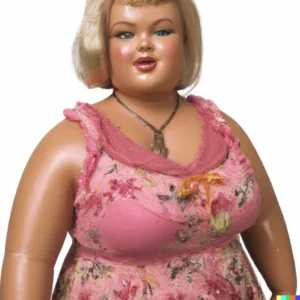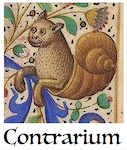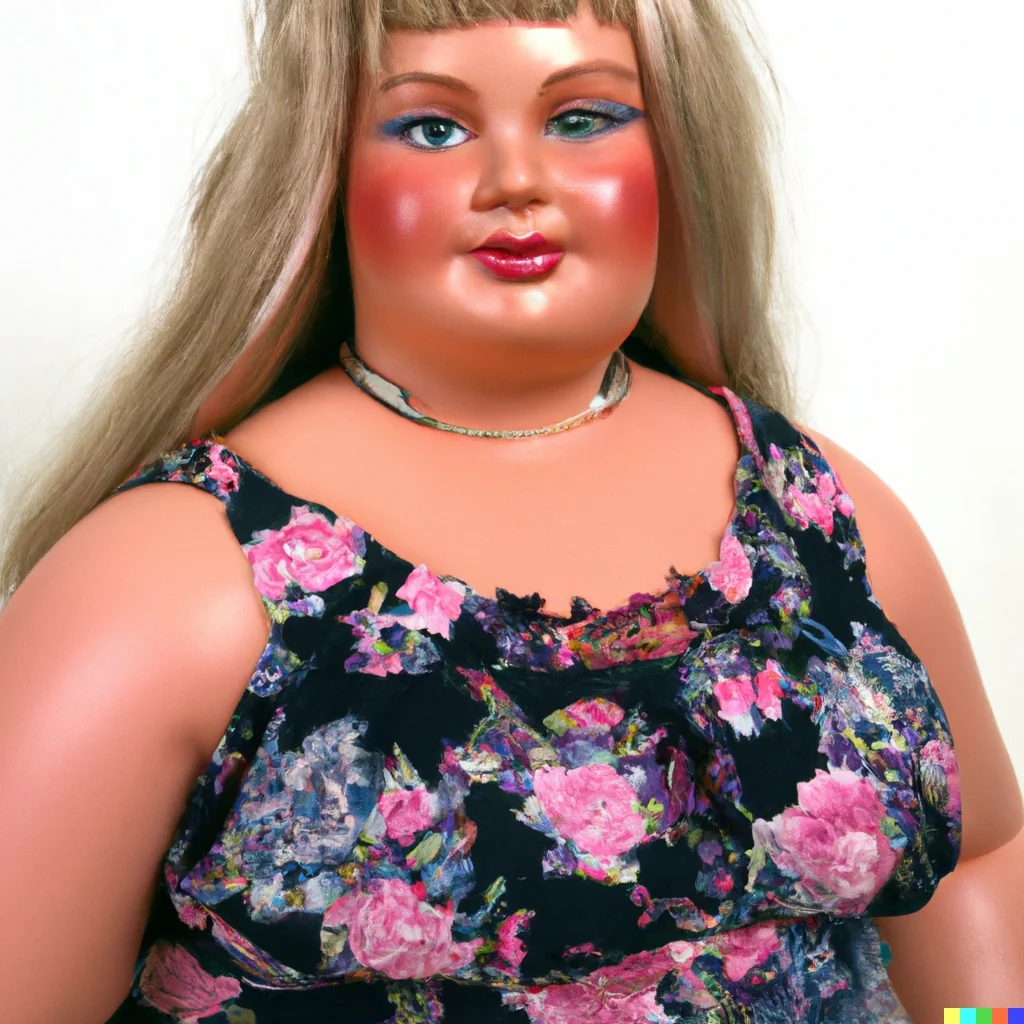Barbieland behind the curtain
It’s a Barbie world, sang a song, and now we hear the same tune in a movie.
But we do NOT live in a Barbie world.
If anything, it’s quite the opposite.
For all its defects and its shallow consumerism, Barbie’s world was kitsch but at least it was pink and cheerful.
But our modern world is, in lots of ways, grey and ugly and sad. Most men and women are overweight. Women dress mostly in black, dye their hair in unnatural colours and vandalize their bodies with tattoos. And all this is pushed from above, of course. This is from a recent fashion show in Berlin, telling modern women how they should dress.
After years of mostly not watching any recent Hollywood movies, I ended up watching “Barbie”.
I know I shouldn’t, but the only other option was the latest “Indiana Jones”, which I knew was really bad, and “Oppenheimer”, which was three hours long and was also another obvious propaganda film. But we’ll talk about this one some other time.
Anyway… “Barbie” was really, really bad. I knew it was going to be bad, having read a few reviews, but I didn’t expect it to be this bad. It is almost unbelievable that it is making so much money. I think the marketing was very clever, and the brand name is of course very strong. The art direction is pretty good, I suppose — but otherwise the movie just sucks.
They could have made a good movie for the “Barbie” doll audience — you know, girls from 5 to 13 or so. Before they went full woke, Pixar and Disney used to make relatively good movies that were fun for children and bearable for adults.
But Barbie is something else.
First of all, the plot makes no sense. It’s a lazy script, never bothering to explain the rules of its own universe. It feels more like an essay written by a Women’s Studies major. It even has this very annoying narration that puts you off from the minute it starts, and I lost count of how many times they use the word patriarchy.
The only thing that I found remotely interesting, was that at some point they suggest that whatever children do with their plastic dolls ends up affecting the living dolls in “Barbieland”, in some kind of voodoo effect.
I thought this could become a cool plot for a horror movie.



But alas, that was not to be.
No, they preferred to insert two annoying LatinX women, mother and daughter, preaching feminist cliches.
And the mother of course has a pathetic white husband, another classic trope. It’s even implied that he’s not even the real father of the girl.
Then there’s the always awful Collin Farrell in a retarded role that is not funny and doesn’t make any sense either — why do they want to capture Barbie anyway? It’s never really explained.
I find it strange that it is NOT a film for children. It is really a cynical film directed to adults, or to people who played with Barbies long ago but now for some reason find this “problematic”.
Is Barbie problematic? While the film apparently makes a big deal of the fact that the doll doesn’t have a vagina — er, I think only sex dolls have it — or that it brainwashes girls with an unattainable ideal of beauty, for me the main problem of Barbie is its consumerist aspect. Barbie has lots of clothes, accessories, houses, cars. If you have a Barbie, you need to have a Barbie house, a Barbie pool, a Barbie car, a Barbie private jet. Lots of grown-up western women are like that these days, they want more and more. But to be honest, I don’t think it’s Barbie’s fault…
The film also talks about feminism against patriarchy, putting men against women. Was there any age such as ours, in which men and women seemed to be so far apart and hating each other so much? Men blame women, and women blame men. And both are increasingly alone. Lonely men end up watching OnlyFans and lonely women end up having cats and drinking wine.
Some people criticized the film saying that it was against men, but I don’t think what the film is really about. So what is it really about?
I think it is about showing what and who’s behind the curtain and rubbing our faces in it.
The film starts with a scene showing children playing with baby-like dolls. Then, in a parody of the scene in 2001, a giant Barbie appears, and the girls crush their little baby dolls.
So it’s basically saying, very directly, “yes, we created Barbie to stir away little girls from natural impulses such as becoming mothers, to make them want to become future single women and party girls.” They even say at another point that a pregnant Barbie doll is weird.
Then there’s the whole Ken patriarchy subplot, which again is about the usual dialectics of setting one group against the other. While women get poisoned by feminist influencers, men are led by the so-called PUAs of the manosphere. Now they are trying to sell us this Andrew Tate guy. I never watched his videos, but he’s a clearly manufactured icon. He’s being sold as some kind of role model of masculinity, but… What kind of “role model” for young men is involved in prostitution, porn and corruption? It’s just the other side of the coin — women are sold the OnlyFans prostitution lifestyle, and I guess men should become sugar daddies or pimps. In fact, in the movie, patriarchy Ken dresses very much like a pimp.
Finally, there is a scene in which Ruth Handler, the Jewish creator of the Barbie doll appears and talks to her own creation. This is also about showing what’s behind the curtain.
Bear in mind that the film is written by Jewish filmmaker Noah Baumbach, who is the husband of director Greta Gerwig, who may or may not be Jewish herself, but who grew up in a very Jewish environment. The film is of course produced by the Jews at Warner Brothers and by Mattel, which was founded by Jewish Ruth Handler and her husband Elliot Handler, and currently has an Israeli CEO, Ynon Kreiz. You can’t get much more Jewish than that.
I wouldn’t mind if they had made a half-decent movie, and I never had much of a problem with the Barbie doll itself, but this is a really annoying and preachy film. My advice is, stay away.


